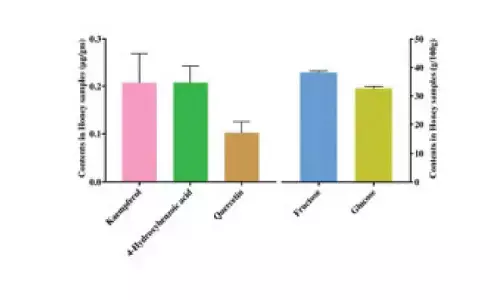Telehealth: Will AI help make this viable?

Whether through remote visits with a primary care provider, or more extensive care, such as seeing a therapist regularly, AI-based monitoring is taking centre stage
AI is rapidly transforming healthcare on a large scale around the world
A few months ago, during the second wave of the pandemic in India, both my dad and daughter tested positive for Covid-19. They did have a high fever and no other respiratory issues. I called a few doctor friends to see if we should admit them into a hospital.
They suggested just home isolation and monitoring the progress as the next step. One of them is a doctor in London, who had already been in the trenches taking care of the Covid patients when the UK had a massive upsurge of the disease.
This doctor buddy of mine sitting in the UK and over a simple WhatsApp messenger sent me the proper prescriptions to start the treatment for my family members. We made sure they monitored the fever and blood oxygen levels every hour and updated the doctor.
I still wonder how he could be there for us, so closely watching the progress of recovery. From what I could understand, he was focused on addressing the symptoms to let the immune system heal the patients. He predicted issues and sorted simple complications like stomach acidity due to medicine and such.
They were up and about in a week and tested negative in no time - amazing first-hand experience of Telemedicine in action across the globe for me. If it can help my family, it can help anyone in the world.
Telehealth is undoubtedly here to stay. The initial hiccups of adoption, 24/7 doctor's attention and many other practical issues were slowing the implementation of Telemedicine. As technology continues to advance, Artificial Intelligence (AI) has become an everyday reality.
And one industry it is rapidly transforming on a large scale is healthcare. As telehealth expands across the world today, AI is one of the most powerful forces evolving it.
Reports say that patient adoption was up 33 per cent this year, while funding continues to grow, and the market is expected to reach $180 billion by 2026. More than 90% of healthcare organizations are developing telehealth applications.
Telehealth is expected to take the healthcare sector to next level. There are four areas of AI in Telehealth that are picking up momentum.
Patient monitoring
Whether through remote visits with a primary care provider, or more extensive care, such as seeing a therapist regularly, AI-based monitoring is taking centre stage. AI has helped dramatically in monitoring the health state of patients inside their homes.
A critical aspect of monitoring patients is medication. Medication non-adherence is a crucial factor in disrupted, wasted healthcare. When you merge remote checking with AI, you get good progress with a less specialized workforce.
Healthcare IT
Another way that AI can assist is with clinical information access -for example, accessing lab results and other EHR content while on a virtual call with patients was an administrative nightmare for providers both during the session and after.
AI platforms can push real-time clinical information into virtual platforms using a configuration tool for seamless integration. They can deliver relevant data from disparate EHR systems across multiple care settings, such as X-rays, on a real-time basis.
Doctor Augmentation AI
The use of AI in telehealth to enable physicians to make real-time, rich, data-driven decisions is a significant factor in creating a better patient journey and better health outcomes.
3 in 4 hospitals that implemented AI said that an augmented ability to treat illnesses works well and reduces burnout of health care professionals.
Analytics
Providing a system to analyze medical information has helped eliminate errors and develop solutions using existing results from procedures and enhancing them greatly by adding computerized intelligence to medical devices and tools.
That said, there are still some naysayers to the efficacy of telemedicine as the best solution for the next generation.
The top two concerns around AI are the perception that AI can never replace physicians in person and the complexity of utilizing consumer-generated data, for example, data from smartwatches that gather blood pressure and heart rate information. Technologies are being developed as we speak to address both these concerns.
(The author is Chairman and CEO of Hyderabad-based Brightcom Group)








